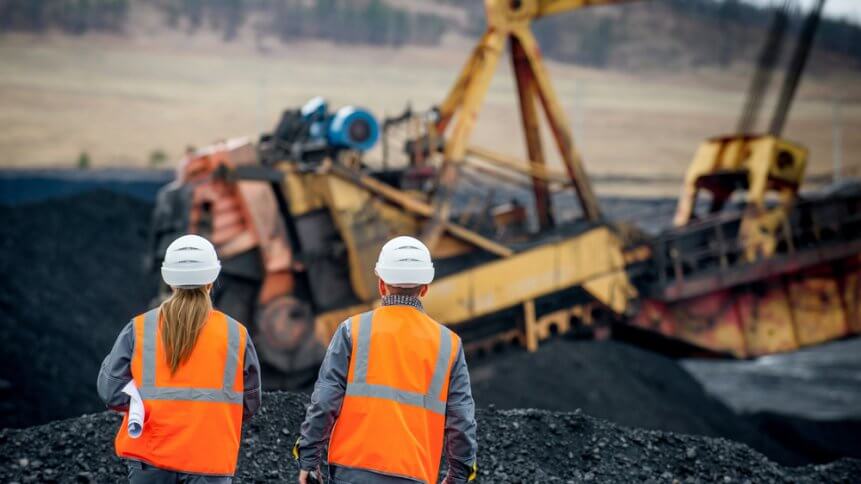UK power station uses drone to survey coal reserves

PwC UK has undertaken a stock audit of a coal reserve using drone technology at one of the UK’s last remaining coal-fired power stations in Aberthaw in South Wales, owned by RWE.
The drone, manufactured and operated by UK drone company QuestUAV, was used to capture over 300 images to create a point cloud ‘digital twin’ of the coal pile in order to measure its volume.
Based on the volume measurement, the value of the coal was measured to within 99 percent accuracy. The main objective of the flight was to assess the method’s accuracy, efficiency, and logistical benefits when compared to traditional surveying methods. That includes manually traversing the coal pile can take around four hours— a drone could achieve this in just 30 minutes.
Preparation for the drone flight required access to only a limited area of the coal pile and therefore posed less of a health and safety risk, especially when parts of the coal are unstable.
Moreover, the flight does not interrupt normal operations on the coal pile, such as requiring the movement of machinery and is therefore much less disruptive as a whole.
A ‘digital twin’ of the coal pile produced from the drone data can be viewed by a Geospatial app, that is a visualization tool to help the team analyze the data regarding the inventory on site.
200 hectares of the Aberthaw site could be effectively monitored and managed via aerial images for vegetation management as well.
Drones for industrial surveys
Coal stock has a material value on RWE’s balance sheet, so annual stock observation and evaluation is part and parcel of the audit process. The traditional stock count method involves climbing over the coal pile and using a two meter GPS tracking pole to measure the area and elevation from the ground at various points.
Data is then used to build a contour of the reserves and estimate its volume. While traditional methods remain reliable, the drone trial was conducted to explore ways of challenging the dated method of stock counting.
YOU MIGHT LIKE

Google delivery drone to start European trials
“This trial with RWE is the first time PwC has used drones for audit stock count purposes. It demonstrates the powerful new perspective that we believe drones can offer for businesses across a wide variety of industries,” added Elaine Whyte, UK drones leader at PwC.
She explained that sectors with large assets in hard to reach areas are the most obvious starting points for expanding this kind of work further – from mining to agriculture and forestry.
“It was a classic example of new technology challenging the old – and based on our results, the potential is groundbreaking,” Richard French, audit partner at PwC, said.
“Our recent economic report showed that drones have the potential to not only improve UK productivity but also offer significant net cost savings for businesses to the tune of US$20 billion by 2030,” Whyte added.









